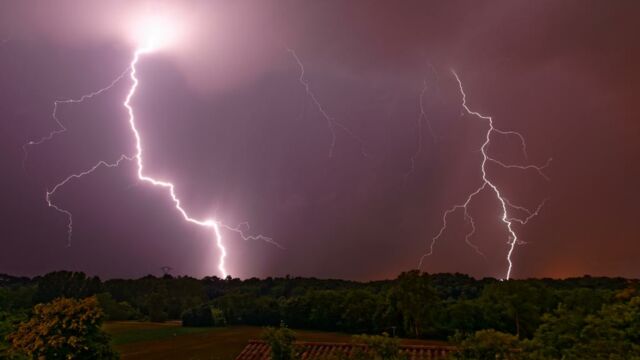Thunderstorms are a frequently observed phenomenon, especially in summer. Some may find the natural spectacle fascinating - for others it might be rather frightening. In earlier centuries, the whole thing was explained as an expression of divine wrath.
Discover our latest podcast
In the meantime, there is a scientifically based explanation for the frequent summer thunderstorms. The pages Planet Schule and Klexikon, among others, report on the weather-related processes, as does the Badische Zeitung.
You can read more about this meteorological phenomenon by clicking here.
Cold and warm air flows collide
In general, the development of a thunderstorm can be explained by the fact that warm air meets cold air. This is especially the case after a prolonged period of intense heat, during which the ground warms up. The moisture that evaporates as a result rises and meets colder air currents there.
The warm water droplets are whirled upward. In the resulting thundercloud, the water droplets rub against each other, creating an ever-increasing tension. This tension is finally discharged in flashes of light twitching across the sky.
Read more:Rare white rainbow spotted in Florida, here's the explanation for this phenomenon
Deadly temperatures
When lightning strikes, the temperature rises 'lightning-like' to several thousand degrees - this heat causes the air in the vicinity to expand rapidly, which then triggers a loud bang - thunder. The fact that we see the lightning long before we hear the thunder is due to the fact that light is faster than sound.
Lightning strikes kill hundreds of people worldwide every year. For this reason, you should quickly get to safety during a thunderstorm - it's best to go indoors or at least sit in your car for the time.
Scientists have recently discovered a method to protect themselves against lightning - read more about it here.
Read more:NASA reveals the real reason why 2024 could be the hottest year ever
This article has been translated from Gentside DE.
Sources used:
Badische Zeitung: "Wie entstehen Gewitter?"
Planet Schule: "Wie entstehen Gewitter?"
Klexikon: "Gewitter"















